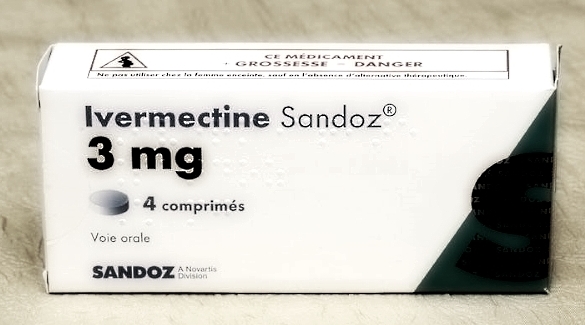By Dr Wong Ang Peng
COVID-19 presents very high stakes. On one side is corporate-industrial interest that wants to protect its vaccine business at all costs. The other is the masses that has suffered untold social and economic costs and clamors a return to normalcy.
In a growing contention to dominate public opinion where experimental vaccines currently rolled out under Emergency Use Authorization (EUA) with the proviso of no 'adequate, approved, available alternatives', there are attempts using bad science to prevent Ivermectin as the viable alternative.
Bad science goes against the norm in scientific rigor – use of falsified data, citing from unauthentic database, highly biased studies; and study purposely designed to produce negative results, an often used tactic that goes unnoticed by those unfamiliar with research methodology.
Selection of the type of outcome measures, sample size, age group of subjects, subjects' disease severity, dosage of the investigative agent, what is used as control, endpoints selection and the methods used can either increase or decrease the chance of producing a statistically significant result.
The latest example of bad science is the study by Roman et al (2021), Ivermectin for the treatment of COVID-19: A systematic review and meta-analysis of randomized controlled trials, preprint in Clinical Infectious Diseases.
Flaws in this systematic review are obvious – selection bias in choosing less favorable studies, inclusion of studies mostly with small sample size, exclusion of the few larger studies that show positive mortality outcome, and the fundamental flaw of using 'adverse events' as an outcome measure.
Roman and colleagues should not use 'adverse event' as an outcome measure in their review. The terminology is the domain of clinical trialists for reporting purpose only.
An event, which may or may not be an effect of an intervening agent under study, must be reported. For serious adverse event, meaning death, the trial must put on hold to allow investigation if the investigative agent is the cause.
In short, an adverse event is not to be construed as an adverse reaction or side effect. Each of the terms connotes a different meaning. Using adverse event as an outcome measure shows the authors were biased in their study design.
Bias towards the selection of studies was obvious. Studies with small sample sizes that have higher chances of producing statistically non -significant results were mostly chosen. Studies like Elgazzar et al (n = 200) and Hashim et al (n = 140) that showed significant mortality reduction were excluded in the review.
For mortality outcome, serious cases matter. But the reviewers selected studies involving mild to moderate COVID cases that made little difference to mortality outcome.
The Roman et al systematic review that has mortality as the primary outcome measure is biased and designed with intention to show a negative outcome.
Roman and colleagues made a glaring error in their forest plot for length of hospital stay in the Niaee et al (2020) study.
The mean for the length of hospital stay is stated as 6.59 for the Ivermectin arms and 6.02 for the control arms. Whereas in the published paper of Niaee et al, the mean is 6.5 for the Ivermectin arms and 7.5 for the control arms and a high p-value of 0.006.
Although Dr Roman declared no conflict of interest in this review, in another clinical trial on the anticoagulation drug, Rivaroxaban that has good potential for use in category 3 COVID-19 patients, he and others received funding from Johnson & Johnson.

The Lopez-Medina et al (2021) is another example of a study that should have been better designed.
The primary outcome measure, which is time to symptoms resolution did not specify what symptoms and how they were to be measured.
It gives rise confounding issue. A COVID-19 patient could have a myriad of symptoms and not all patients have the same symptoms. The original study design was the 8-category ordinal scale to measure patients' progress or deterioration but was changed midway during the trial to time to symptoms resolution.
Also, a labeling error was discovered that resulted in all patients being given Ivermectin and none given the placebo during a two-week period. How many of the subjects were affected was not mentioned.
This study showing negative results for Ivermectin has both a very high level of bias, and study design and execution flaws.
It should have been excluded from the review. The two lead authors disclosed they received grants and fees from sponsors that are also producing vaccines for COVID-19. Their autonomy, an essential principle in research ethics, is compromised.
Bad science was employed to disparage hydroxychloroquine too. When hydroxychloroquine was showing some evidence of efficacy against COVID-19 in mid 2020, two badly designed short-duration studies were published using flawed data from analytics company, Surgispher.
One study showed the drug could not lower risk of death while the other showed the risk of death was 2.89 times higher with hydroxychloroquine.
Bringing hydroxychloroquine to disrepute and without any viable medicine for COVID-19 then, the path was paved for vaccines to be approved under EUA.
When discovered of the flawed data much later, the New England Journal of Medicine and The Lancet retracted the two studies.
From the perspective of corporate-industrial interest, any viable medicine for COVID-19 is a threat to the vaccines EUA. Ivermectin poses that threat.
Disparaging Ivermectin with bad science is a criminal tragedy in the contention to dominate public opinion.
ADVERTISEMENT
ADVERTISEMENT


































